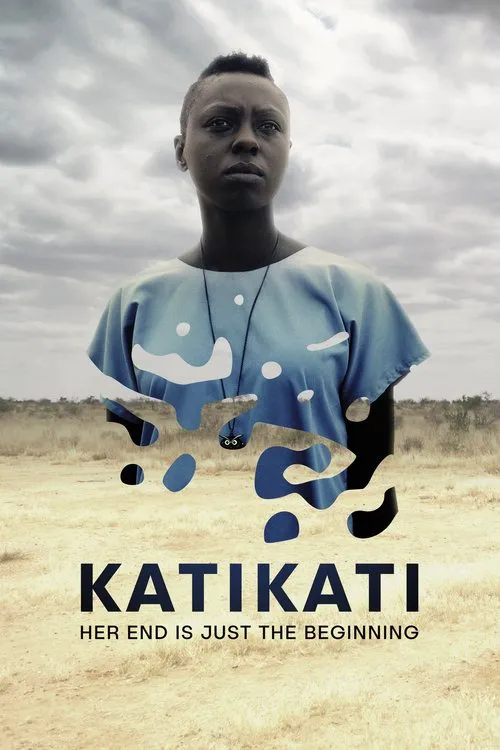Kati Kati

Enredo
Kati Kati, a poignant and enigmatic film by writer-director Mbithi Masya, unfolds as a haunting narrative of self-discovery and atonement, set against the backdrop of Kenya's turbulent past. The story follows Kaleche, a young woman played by Nyokabi Gethaiga, as she navigates the surreal landscape of the afterlife. Upon awakening in a desolate wasteland, Kaleche finds herself shrouded in an impenetrable veil of amnesia. She is an isolated figure, adrift in a world devoid of familiar markers or memories. In this liminal state, she encounters a group of strangers who introduce her to an oasis resort, a sanctuary nestled in the heart of the barren landscape. The oasis becomes a refuge, a fragile respite from the desolate terrain, but it is also a place of introspection and transformation for Kaleche. As the story progresses, Kaleche begins to form connections with her fellow residents of the oasis. There's Mzee, a wise elder who serves as a guide and mentor; a group of women who become her friends and confidantes; and a few enigmatic figures, shrouded in mystery, who seem to hold secrets and stories that only they may know. Through her interactions with these individuals, Kaleche starts to piece together fragments of her past, but the process is marked by confusion, disorientation, and a creeping sense of dread. The narrative is interspersed with vivid dreams and visions, which evoke fragments of Kaleche's memories. These ephemeral sequences are tinged with a dark, foreboding quality, hinting at a life marked by pain, loss, and tragedy. Through these glimpses, Masya skillfully reveals the traumas and atrocities that Kaleche has experienced, leaving the audience with a haunting understanding of the depth of her suffering. Kati Kati is, at its core, a meditation on personal atonement and the search for redemption in the face of violence and trauma. The film is set against the backdrop of Kenya's violent past, which adds a profound layer of context and historical nuance to the narrative. Masya's vision is not simply a reflection on the horrors of war, but also an exploration of the ways in which collective trauma can shape individual experiences, leading to a sense of disorientation and disconnection. As Kaleche grapples with the fragments of her past, she is forced to confront the darkness that has haunted her. Her journey becomes an anguished exploration of guilt, shame, and responsibility, as she seeks to understand the extent of her complicity in the traumas that have beset her. This inner turmoil is mirrored by the stark beauty of the film's landscape, which offers a stark contrast between the arid terrain and the tranquil oasis. Through its poetic and enigmatic narrative, Kati Kati poses profound questions about the human experience, the nature of memory, and the search for redemption. The film is a powerful allegory for the ways in which our collective past shapes our present, and how, as individuals, we are forever changed by the traumas we experience. As Kaleche inches closer to understanding the mysteries of her past, she is forced to confront the limits of forgiveness and the weight of her own accountability. Kati Kati is a film that resists easy interpretation, instead opting for a rich, nuanced exploration of the complexities of human experience. With its striking visuals, haunting soundtrack, and a narrative that is both dreamlike and devastating, Masya's feature debut is a triumph of poetic filmmaking, one that lingers long after the credits have rolled. This enigmatic masterpiece is a testament to the power of cinema to capture the depths of human suffering, the fragility of memory, and the elusive nature of redemption.
Resenhas
Recomendações




